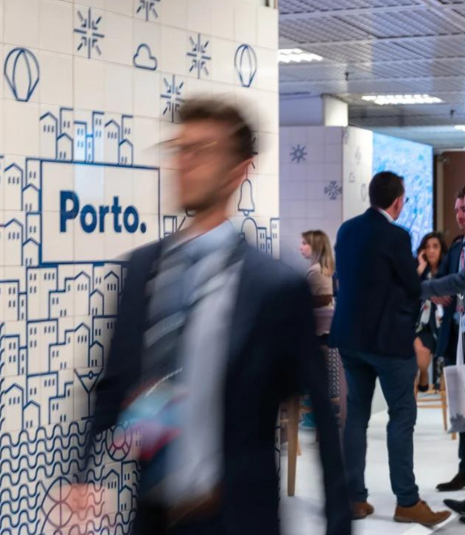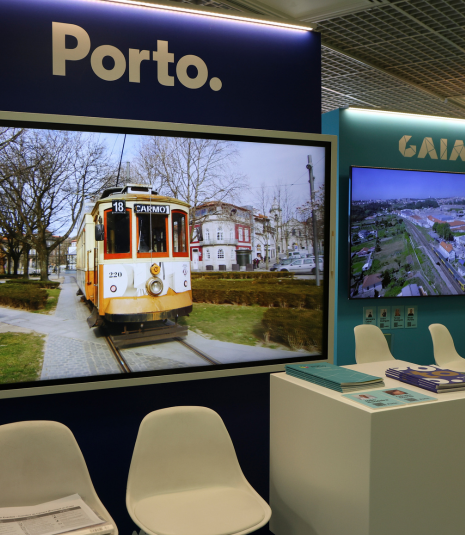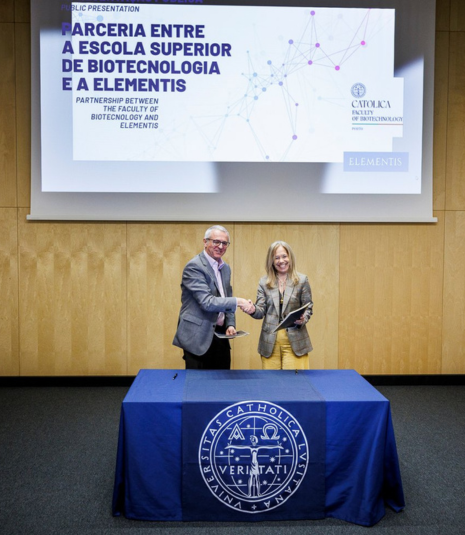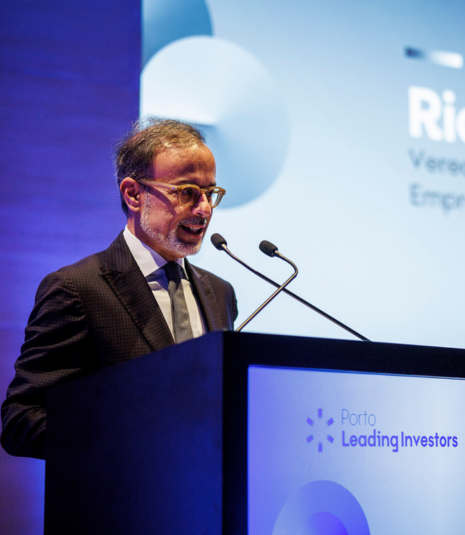New Master Plan prioritizes employment, housing and development in the eastern part of the city
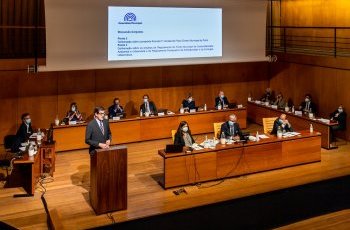
The new Municipal Master Plan, which defines the strategic lines of the city of Porto during the next decade, was approved by the Municipal Assembly on Monday night. The revision proposal, admittedly reformist and not breaking with the previous plan places "the balance of the eastern zone" as one of the main priorities, in addition to a strong commitment to employment, the provision of more housing and the duplication of green areas highlighted Rui Moreira, who received the abstention of the president of the Campanhã Parish Council, who did not follow the direction of the PS parliamentary group with a dissenting vote.
The proposal to revise the Master Plan was approved with votes in favor of the deputies of the Rui Moreira municipal group: Porto, Nosso Partido, abstention from PSD, two abstentions from PS (from the president of the Campanhã Parish Council, Ernesto Santos, and Rodrigo Oliveira), dissenting votes by the rest of the socialist bench, CDU, BE, and PAN.
In the debate, which took place in an extraordinary session held at the Almeida Garrett Municipal Library, the Mayor of Porto highlighted the wide public participation that took place throughout the process, which lasted for six years, partly due to the legal obligation to submit a Municipal Plan for the Defense of the Forest against Fires (which, clearly, the Municipality of Porto does not have), and the constraints caused by the pandemic.
During this time, which was not wasted by the independent majority, the population was informed of the development of the works, in various forums and moments, and all the constituent parts of the Plan were also made available on a digital platform purposely created by the municipal services, in order to facilitate interaction with residents (without neglecting the physical consultation of documents to all who requested it).
In one of his speeches, the Mayor of Porto highlighted 403 participations and more than 35 public meetings held in parish councils and other public entities, to which were added 13 meetings held by the Municipal Assembly Planning and Spatial Planning Monitoring Committee and individual meetings held with each political force. That is why, in response to some criticism from the opposition, namely from BE deputy Susana Constante Pereira, he said: "It is not worth saying that there was no democratic debate." And as for identical comments by CDU deputy Rui Sá, he added: "The CDU had low participation in the public debate for reasons that it chose".
From right to left, the "delivery and professionalism" of the municipal technicians involved in drawing up the plan was consensual, pointed out the deputy of the PS Cláudia Costa Santos. The works, which went through three Urbanism councilors (in the last years with the architect Pedro Baganha at the helm), had in their genesis the work developed by the architect Manuel Correia Fernandes, councilor of the PS with this responsibility in the previous municipal cycle.
For this reason, Rui Moreira did not understand the criticisms coming from the Socialist Party. "PS actively collaborated in the process. 90 percent of the questions it presented were incorporated into this plan, and it is now asking questions that it had never raised before. It erases the work that I greatly appreciate from Architect Correia Fernandes, who, in some way, drew the strategy that came to be followed, which still causes me to be surprised", he declared.
Accusing the party of "political tactics", also due to the fact that they expressed that there was no articulation with the neighboring municipalities, Rui Moreira also considered that when voting against, the socialist deputies "forget your commitment, which remains ours, with Campanhã. They forget the strategy that we defend and stick to. But we already realized that the glue is of poor quality. Objectively, they do not value at all the strategy that we stand for, and that we intend to continue to pursue for the eastern part of the city". What is certain is that, later, during the vote, the president of the Campanhã Parish Council, Ernesto Santos, and also the deputy Rodrigo Oliveira, both deputies of the PS, abstained.
Regarding the deputy of the PAN, who asked for even more space for public enjoyment, Rui Moreira commented that "Porto is a very built city. The vision he defends was to take the population and replace it", he mocked.
According to the deputy Carla Leitão, deputy elected by the independent movement, the proposal for revision of the Master Plan presents "a political vision of the city that wants to be prepared for the medium and long term challenges, vibrant, cohesive, of national and international reference", having listed five major priority strategic options.
The first, related to the Environment. "Fundamental changes were introduced, considering the resilience and environmental sustainability, in the valorization of the environmental heritage and in the promotion of the 'sponge city concept, having as a pilot project the Parque Central da Asprela". In this context, Carla Leitão also pointed out the Charter of the Municipal Ecological Structure which, "unlike 2006, in which it appeared as a complement, is now a fundamental part in the planning and introduces specific building parameters", providing for the duplication of green areas for public use and the bet on biophysical corridors, the qualification and dewatering streams, tax incentives to promote strategic efficiency, among other parameters.
Second, the bet on strengthening and diversity of Housing, in order to continue to stimulate the demographic recovery. In this regard, during the debate, and after the PSD municipal deputy Alberto Machado said that the population of Porto today is less than in 1930, Rui Moreira underlined the figures of the INE (National Statistics Institute), demonstrate how the Porto's population has been growing over the last few years, albeit slightly, contradicting decades of exodus to the periphery.
And it is this emphasis that the new Master Plan wants to continue to print by registering as one of its main objectives the reinforcement of the fixation of young people and young families, through the provision of affordable housing or at controlled costs. That is why the document contemplates the strategic densification of some areas of the city or, in another context - and to mitigate the mono functionality especially felt in the city center -, it introduces the "inclusive zoning”, which foresees the affecting of a percentage of the building area to affordable housing, in the center of Porto, for operations with an area of more than 1,500 square meters and according to a specific formula.
In addition to betting on the qualification of public transport, which can only be understood "in concert with the metropolitan area", Carla Leitão listed, in terms of Mobility, the bet on soft modes (in particular on the cycle network) and on the qualification of space public, as well as the progressive reduction of surface parking in areas well served by the underground network and other public transport networks, committing the municipality to provide, alternatively, parking in garages for residents, public space for other functions, namely pedestrian and enjoyment", he clarified.
With regard to Patrimony, the proposal to revise the Municipal Master Plan also strives for the definition of the patrimonial values to be defended, the result of an exhaustive work by the municipal services of urbanism, which intended, by creating a "reference set" to mitigate discretion. In this chapter, the list of stores protected by the Porto de Tradição program is attached.
Also highlighted in the new Master Plan for the creation of mechanisms that aim to stimulate the Economy, by stimulating economic competitiveness and employment, a fundamental area for the promotion of social and territorial cohesion, one of the strategic axes of the current governance.
"The plan assumes the city of Porto as a competitive territory at national, International and European level in medium-sized cities, betting on more investment, more employability, more economic sustainability." stimulation of street commerce, but also the bet on business and knowledge-generating areas, in close articulation with universities.
"The aim is to rebalance the centralities of the municipality, countering the anchor effect of the center and of Boavista", said the city deputy.
"Not being able to predict the future, this Master Plan, translated into a single word, is a catalyst", because it assumes "factors of sustainability, well-being, cohesion, investment, resilience, trust, and without space for fundamentalisms", he considered.

